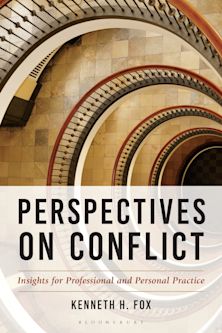- Home
- ACADEMIC
- Politics & International Relations
- Politics - Other
- The Progressive Revolution in Politics and Political Science
The Progressive Revolution in Politics and Political Science
Transforming the American Regime
John Marini (Anthology Editor) , Ken Masugi (Anthology Editor) , Paul Carrese (Contributor) , Eric R. Claeys (Contributor) , Edward J. Erler (Contributor) , Tiffany R. Jones (Contributor) , John Marini (Contributor) , Ken Masugi (Contributor) , Will Morrisey (Contributor) , Peter C. Myers (Contributor) , Larry Peterman (Contributor) , John G. West (Contributor) , Thomas G. West (Contributor) , Scot J. Zentner (Contributor)
The Progressive Revolution in Politics and Political Science
Transforming the American Regime
John Marini (Anthology Editor) , Ken Masugi (Anthology Editor) , Paul Carrese (Contributor) , Eric R. Claeys (Contributor) , Edward J. Erler (Contributor) , Tiffany R. Jones (Contributor) , John Marini (Contributor) , Ken Masugi (Contributor) , Will Morrisey (Contributor) , Peter C. Myers (Contributor) , Larry Peterman (Contributor) , John G. West (Contributor) , Thomas G. West (Contributor) , Scot J. Zentner (Contributor)
You must sign in to add this item to your wishlist. Please sign in or create an account
Description
We cannot understand our current political situation and the scholarship used to comprehend our politics without taking full account of the Progressive revolution of a century ago. This fundamental shift in studying the political world relegated the theory and practice of the Founders to an antiquated historical phase. By contrast, our contributors see beyond the horizon of Progressivism to take account of the Founders' moral and political premises. By doing so they make clear the broader context of current political science disputes, a fitting subject as American professional political science enters its second century.
The contributors to the volume specify the changes in the new world that Progressivism brought into being. Part I emphasizes the contrast between various Progressives and their doctrines, and the American Founding on political institutions including the presidency, political parties, and the courts; statesmen include Frederick Douglass, Theodore Roosevelt, Woodrow Wilson, and John Marshall. Part II emphasizes the radical nature of Progressivism in a variety of areas critical to the American constitutional government and self-understanding of the American mind. Subjects covered include social science, property rights, Darwinism, free speech, and political science as a liberal art. The essays provide intellectual guidance to political scientists and indicate to political practitioners the peculiar perspectives embedded in current political science.
Published in cooperation with The Claremont Institute.
Table of Contents
Part 2 Part I: The Progressive Critique of Constitutionalism
Chapter 3 Progressivism and the Transformation of American Government
Chapter 4 Theodore Roosevelt on Self-Government and the Administrative State
Chapter 5 Frederick Douglass' Natural Rights Constitutionalism: The Postwar, Pre-Progressive Period
Chapter 6 Regimes and Revolutions: Madison and Wilson on Parties in America
Chapter 7 Montesquieu, the Founders, and Woodrow Wilson: The Evolution of Rights and the Eclipse of Constitutionalism
Chapter 8 Marbury v. Madison and the Progressive Transformation of Judicial Power
Part 9 Part II: The Progressive Persuasion in Practice and Theory
Chapter 10 Progressivism, Modern Political Science, and the Transformation of American Constitutionalism
Chapter 11 Darwin's Public Policy: Nineteenth Century Science and the Rise of the American Welfare State
Chapter 12 Zoning and Progressive Political Theory
Chapter 13 Campaign Finance Reform: The Progressive Reconstruction of Free Speech
Chapter 14 Aimless Theorizing: The Progressive Legacy for Political Science
Part 15 About the Editors and Contributors
Product details
| Published | Jun 30 2005 |
|---|---|
| Format | Ebook (Epub & Mobi) |
| Edition | 1st |
| Extent | 388 |
| ISBN | 9781461666547 |
| Imprint | Rowman & Littlefield Publishers |
| Series | Claremont Institute Series on Statesmanship and Political Philosophy |
| Publisher | Bloomsbury Publishing |
About the contributors
Reviews
-
Recommendeddddd
Choice Reviews
-
If you want to know why the Constitution became a 'living' document, why the size and scope of government can't be limited, and how we got here, you must get it.
Peter W. Schramm, Executive Director of the John M. Ashbrook Center for Public Affairs and a Professor of Political Science at Ashland University
-
Edited by Claremont Institute senior fellows John Marini and Ken Masugi, The Progressive Revolution in Politics and Political Science brings together eleven essays to explain the conflict between classic natural right and historicism that has been at the core of the Western philosophic tradition, and which plays itself out in an American context as the conflict between our country's founding principles and the modern administrative state. John Marini, who perhaps more than anyone has plumbed the depths of Progressive thought and found its source in Hegelian historicism, provides a breathtakingly accurate account of the Progressive transformation of the American Minddd
Claremont Review of Books
-
Edited by Claremont Institute senior fellows John Marini and Ken Masugi, The Progressive Revolution in Politics and Political Science brings together eleven essays to explain the conflict between classic natural right and historicism that has been at the core of the Western philosophic tradition, and which plays itself out in an American context as the conflict between our country's founding principles and the modern administrative state. John Marini, who perhaps more than anyone has plumbed the depths of Progressive thought and found its source in Hegelian historicism, provides a breathtakingly accurate account of the Progressive transformation of the American Mind
Claremont Review of Books
-
Recommended
Choice Reviews



































